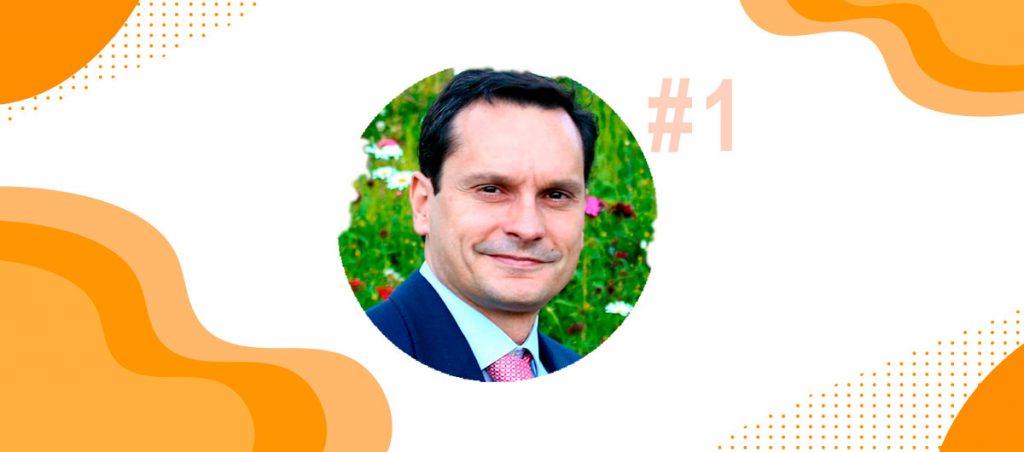Data, numbers and statistics are a very useful tool to explain processes, projects and tasks. And of course, the SAP world not only can, but should be included in that statement. Explaining and working from the quantitative means having a solid base from which to argue and keep going. freelance
However, there are concepts and details that numbers cannot talk about. There are corners that the quantitative cannot reach. No matter how hard it tries. Data explain the what and the how, but not the why, which stories usually deal with. And every story has its protagonist, who is always best told by himself. So, at Befree we inaugurate Befree Talks with Alberto Ascorve, an SAP professional member of our platform with a lot to tell. freelance
Ascorve has more than 20 years of experience in this field. In this interview he explains how his beginnings were, what he likes most about the SAP world and what it’s like to be self-employed and freelance. In addition, he also gives some advice and recommendations to all SAP professionals and companies.
Why did you become interested in the SAP world, and what was it about SAP that caught your attention?
It was serendipitous and accidental. In my first job after graduating I started in a company whose president had brought SAP to Spain. We were running R/2, and we were starting R/3. What caught my attention, at a time when new technologies had not yet appeared, was the integration of data and process management with this tool. Using it made it very easy to understand.
Summarize your professional career, how would you evaluate it so far?
My professional career began in 1997 at Sola & Asociados. It was a pioneer company in the SAP world in Spain. We started selling and implementing SAP software in many Spanish companies. I value my career very positively. Being an SAP professional has allowed me to grow and acquire new knowledge. In addition, with the digital revolution of recent years I have been able to learn new SAP products and integrate them with other tools. And, of course, to participate in more global projects with multicultural workgroups.
Since you mention that topic, what has been the biggest and most ambitious SAP-related project you have worked on? And what was the outcome?
The most ambitious project was one we developed in Peru. We implemented SAP R/3 in 1998 at Alicorp, the largest consumer company in the country. It was established in all plants and in all businesses, starting in Bigbang mode.
In SAP, it is much more common to be a freelancer than in any other work sector. You have worked both as a staff member and as a freelancer. How would you explain what it’s like to be self-employed?
It obviously involves risks and uncertainty at the beginning, but those feelings disappear once you start moving in the freelance world. Being freelance means bringing added value to companies, either because of your knowledge or your experience. It means providing solutions to companies and being more efficient than with your own resources.
In the early days of SAP, the freelance was more of a guru who had specialized knowledge on a subject that was impossible to get information about internally. I think it should remain that way, but it is being lost, and there are people who decide to go freelance without having acquired sufficient training and experience. On the other hand, being a freelancer means having a network of contacts and references that allows you to have work continuity. This is essential for freelancing. And last but not least, being freelance gives you the opportunity to choose when and with whom to work.
Now that you have been in it for a while, would you go back to the SAP world?
The truth is that I would have liked to go into sports. It has always been my passion. But it is clear that both professionally and personally, the SAP world has given me many joys and has allowed me to be able to decide where to work, as well as to combine my professional life with my family life.
In 2008 you took the plunge into entrepreneurship and created your own consultancy, Caneyes Consulting. What does the project consist of? How did the idea come about?
I actually started as an entrepreneur in 2007 as a freelancer. In 2008 I realized that the legal figure that best suited what I wanted to do was an SL. This allowed me to hire resources and increase the volume of business.
Based on your experience, what do you think a SAP professional needs to be successful?
Basically, two keys: on the one hand, training. In SAP, knowledge is basic to be able to meet the needs of customers. On the other hand, participating in different types of projects. That is to say, zero implementations, roll outs, maintenance… in companies of different business sectors. Companies value consultants who know their own business processes and who have the know-how to help improve them.
Finally, Alberto, what message would you like to send to the professionals and companies at Befree SAP Talent Hub?
I would tell the professionals to “sell themselves”, to show all their skills, experience and know-how. They should also be ambitious and set their rate based on their experience. This is the way to become a solid freelancer. To companies, that they value the efficiency and added value that they will get with a freelancer where their experience can be contrasted with references.






